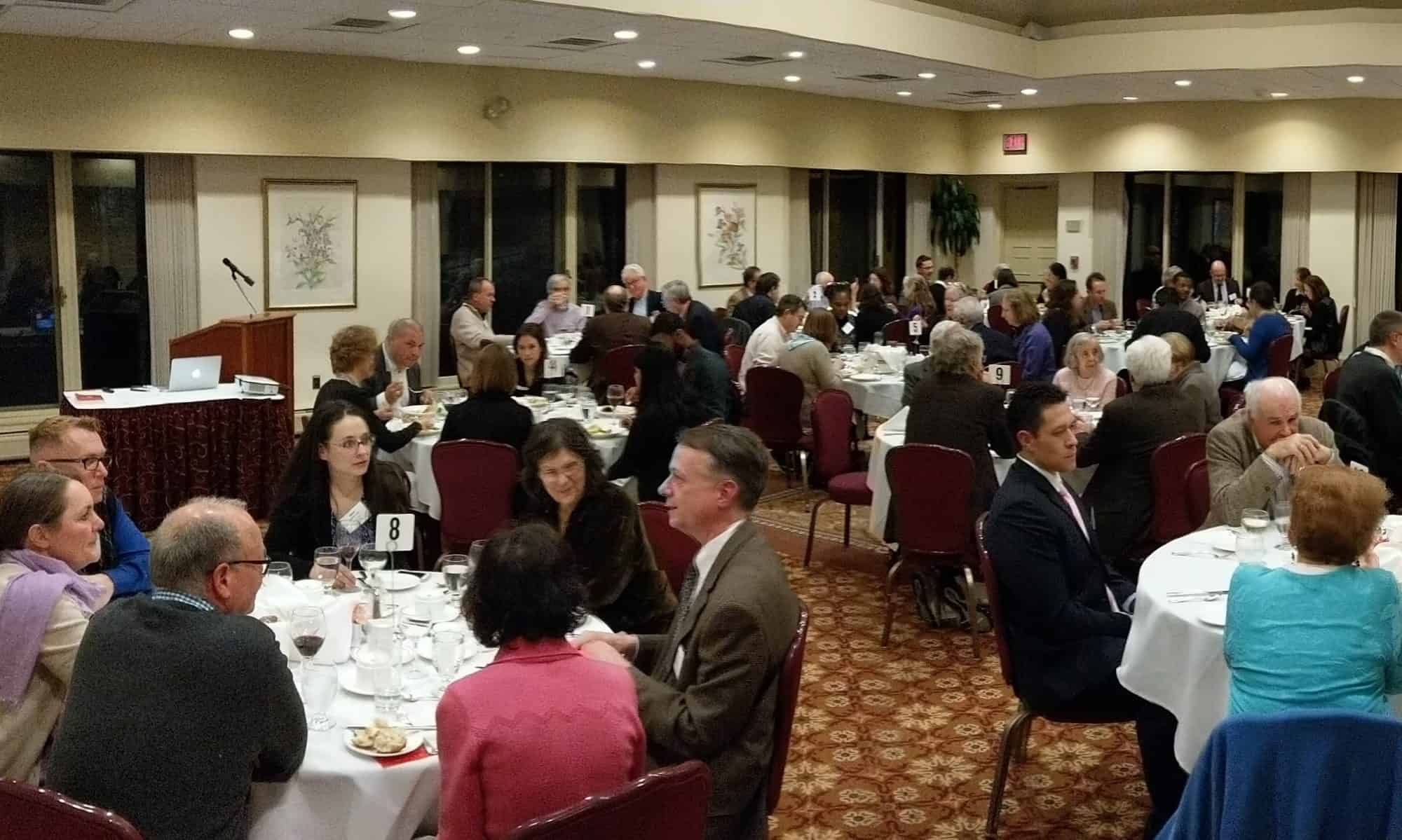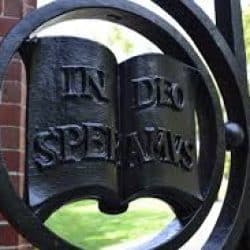
The Founders were humbler than today’s Washington elite.
EDITOR’S NOTE: The following article is excerpted from Michelle Fields’s new book, Barons of the Beltway: Inside the Princely World of Our Washington Elite — and How to Overthrow Them.
‘What do you do?” may be the No. 1 question asked in the Washington, D.C. Beltway. It achieves two things: It gives the asker the opportunity to brag about their own job title and lets them know whether the person they’re talking to is worth their time.
Job titles and associations are the lifeblood of D.C. You’re no one unless you have a title, whether it’s “congressman,” “ambassador,” “chief of staff,” or an impressive title at a firm or media company. Unlike most jobholders in America, politicians in D.C. get to keep their titles for life. Think about it: You can be the CEO or vice president of the largest corporation in America, but once you leave that job, so goes the title. In Washington, D.C., you can have the title of “president,” “congressperson,” or “senator,” and that is your title for life. It doesn’t matter if you were a terrible congressperson who served only one term; you will forever be referred to and introduced as a “congressman” or “congresswoman.”
It’s bizarre perks of D.C. power such as this that draw thousands of young, type-A recent college grads to Washington — out of a desire not to serve our country but to get a title. And if you don’t have a title, good luck getting someone to talk to you for longer than two minutes. Washington is a town obsessed with titles and where being an obnoxious blowhard is socially acceptable. But it wasn’t always like this, and it’s certainly not what our Founding Fathers envisioned.
When President Thomas Jefferson held parties, he refused to use his title. In his eyes, titles were the obsession of monarchies, not of democratic nations. So he would send out invitations to official engagements using his own name rather than “president.” He replaced bowing with the shaking of the hand.
And the dinners thrown by our Founding Fathers didn’t include them wearing $12,000 designer jackets or eating with gold cutlery like our federal officials today. They understood their important role in setting a precedent for future generations and their role in conveying to the world the ideals of their young country. They did everything they could to distance themselves from the opulent lifestyles reminiscent of a monarchy. Jefferson proudly wrote in 1802 that he and the Founding Fathers “have suppressed all those public forms and ceremonies which tended to familiarize the public eye to the harbingers of another form of government.”
Jefferson wanted to ensure that the pomp and show of European courts was eliminated during dinnertime, and that instead the simplicity and informality of America were represented. He would wear austere clothing that he believed best reflected rural values. And when it came time for parties and social functions, Jefferson would go out of his way to ignore the aristocratic protocols of his former country. He insisted that round tables be used at dinners in order to project the democratic spirit of America. He didn’t like the rectangular tables used at royal functions, which would seat guests according to their rank and status. Jefferson figured that, at a round table, no one could sit at the head and no one could mistake him for a king. He believed that “when brought together in society, all are perfectly equal, whether foreign or domestic, titled or untitled, in or out of office.”
When the British minister to the United States, Anthony Merry, and his wife paid a visit to President Jefferson’s White House, Secretary of State James Madison accompanied them. The Merrys were excited and arrived wearing their finest clothing for the exciting introduction. Mr. Merry was in full diplomatic dress, even wearing a ceremonial sword and gold braid. But when they arrived at the main hall in the residence, they were flabbergasted — where was President Jefferson? The couple was accustomed to royal protocol, which said that the president ought to be waiting for them in the reception room. They stood there impatiently, but Jefferson was nowhere to be found.
Since Jefferson wasn’t there, James Madison went to look for him with Mr. Merry. As they were walking through a passageway, Jefferson popped out of his study and greeted them. Merry was shocked — appalled. Not only did the president break protocol by failing to greet them upon their arrival, but he also wasn’t even dressed for the occasion! Merry, dressed in his ceremonial sword and lavish outfit, felt ridiculous standing in front of President Jefferson, who was dressed casually in unceremonious workday clothing and wearing slippers.
According to Merry, the president of the United States was “not merely in an undress but actually standing in slippers down at the heels, and both pantaloons, coat, and under-clothes indicative of utter slovenliness and indifference to appearances, and in a state of negligence actually studied.” The Merrys assumed that Jefferson’s informality had to be a mistake. They thought that maybe they had just caught President Jefferson at a bad time. He must have been utterly embarrassed. But Jefferson’s casualness was deliberate His relaxed style was meant to send a message to his foreign guests: America was different. It was not meant to be a personal insult to Ambassador Merry. It was meant to send a message to Great Britain about America’s values.
A few days later, the Merrys were invited back to the White House for an official dinner. They were told to meet for a reception in the drawing room before dinner. They were hesitant to return but accepted the invitation under the assumption that they would likely be the guests of honor and treated exceptionally well as an apology for the embarrassing incident earlier. As they waited in the drawing room they figured that President Jefferson would arrive and apologize profusely. Jefferson did no such thing.
Jefferson arrived when it was time for dinner. Rules of protocol were such that Jefferson was supposed to take the arm of Mrs. Merry and escort her to the table. Instead, Jefferson took the arm of Dolley Madison, who served as the White House hostess for the widowed Jefferson. Jefferson escorted Madison to the table and ignored the shocked Mrs. Merry. Mr. Merry was furious to say the least. What kind of country was this man running?
To make matters worse, when the Merrys arrived at the dinner table they realized that there wasn’t a seat designated for them. They figured there must be a mistake. The Merrys were accustomed to attending events where they were seated according to their rank. However, Jefferson’s seating arrangement was pell-mell. It was a first-come, first-served arrangement, so all guests were seated according to how quickly they sat at the table. Mr. Merry was forced to scramble and compete for seats with other, socially inferior guests.
The Merrys viewed Jefferson’s irreverence toward foreign dignitaries — and others accustomed to royal treatment — as insulting. But Jefferson felt that the informality was necessary. He wanted to send a clear message that America was democratic and that he wasn’t going to carry on the arbitrary rules and protocol that dictated royal life. He didn’t care if Merry had some fancy title. He wanted to show the couple that in America royal titles would be obsolete and all would be treated equal. One doesn’t get a good seat simply because one has a title.
— Michelle Fields is a contributing reporter for the Huffington Post. This piece is reprinted from Barons of the Beltway: Inside the Princely World of Our Washington Elite — and How to Overthrow Them. Copyright © 2016 by Michelle Fields. Published by Crown Forum, an imprint of Penguin Random House LLC.

